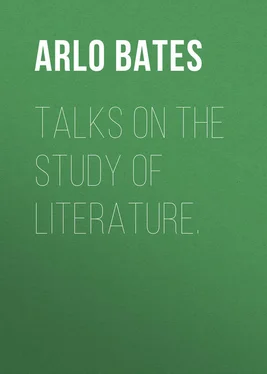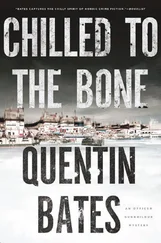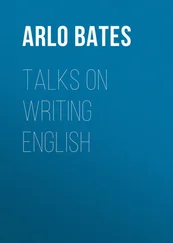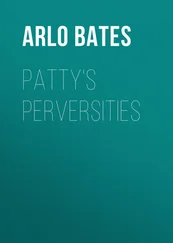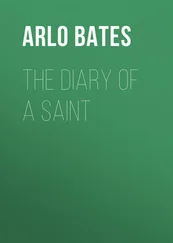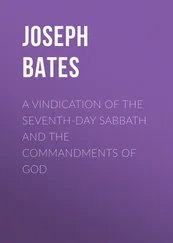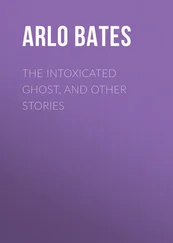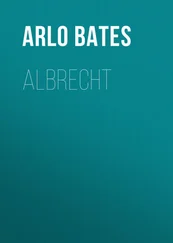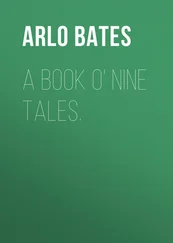Arlo Bates - Talks on the study of literature.
Здесь есть возможность читать онлайн «Arlo Bates - Talks on the study of literature.» — ознакомительный отрывок электронной книги совершенно бесплатно, а после прочтения отрывка купить полную версию. В некоторых случаях можно слушать аудио, скачать через торрент в формате fb2 и присутствует краткое содержание. Жанр: foreign_antique, foreign_prose, на английском языке. Описание произведения, (предисловие) а так же отзывы посетителей доступны на портале библиотеки ЛибКат.
- Название:Talks on the study of literature.
- Автор:
- Жанр:
- Год:неизвестен
- ISBN:нет данных
- Рейтинг книги:5 / 5. Голосов: 1
-
Избранное:Добавить в избранное
- Отзывы:
-
Ваша оценка:
- 100
- 1
- 2
- 3
- 4
- 5
Talks on the study of literature.: краткое содержание, описание и аннотация
Предлагаем к чтению аннотацию, описание, краткое содержание или предисловие (зависит от того, что написал сам автор книги «Talks on the study of literature.»). Если вы не нашли необходимую информацию о книге — напишите в комментариях, мы постараемся отыскать её.
Talks on the study of literature. — читать онлайн ознакомительный отрывок
Ниже представлен текст книги, разбитый по страницам. Система сохранения места последней прочитанной страницы, позволяет с удобством читать онлайн бесплатно книгу «Talks on the study of literature.», без необходимости каждый раз заново искать на чём Вы остановились. Поставьте закладку, и сможете в любой момент перейти на страницу, на которой закончили чтение.
Интервал:
Закладка:
The object of the study of literature is always a means and not an end, and yet in the development of the mind no means can fulfill its purpose which is not an enjoyment. Goethe has said: "Woe to that culture which points man always to an end, instead of making him happy by the way." No study is of any high value which is not a delight in itself; and equally, no study is of value which is pursued simply for itself. Every teacher knows how futile is work in which the pupil is not interested, – in other words, which is not a pleasure to him. The mind finds delight in all genuine activity and acquirement; and the student must take pleasure in his work or he is learning little. Some formal or superficial knowledge he may of course accumulate. The learning of the multiplication table is not to be set aside as useless because it is seldom accompanied by thrills of passionate enjoyment. There must be some drudgery in education; but at least what I have said certainly holds good in all that relates to the deeper and higher development of the mind.
The study of literature, then, is both a duty and a delight; a pleasure in itself and a help toward what is better. By it one approaches the comprehension of those books which are to be ranked as works of art. By it one endeavors to fit himself to enter into communication with the great minds and the great imaginations of mankind. What we gain in this may be broadly classified as pleasure, social culture, and a knowledge of life. Any one of these terms might almost be made to include the other two, but the division here is convenient in discussion.
Pleasure in its more obvious meaning is the most superficial, although the most evident, gain from art. In its simplest form this is mere amusement and recreation. We read, we say, "to pass the time." There are in life hours which need to be beguiled; times when we are unequal to the fatigue or the worry of original thought, or when some present reality is too painful to be faced. In these seasons we desire to be delivered from self, and the self-forgetfulness and the entertainment that we find in books are of unspeakable relief and value. This is of course a truism; but it was never before so insistently true as it is to-day. Life has become so busy, it is in a key so high, so nervously exhaustive, that the need of amusement, of recreation which shall be a relief from the severe nervous and mental strain, has become most pressing. The advance of science and civilization has involved mankind in a turmoil of multitudinous and absorbing interests from the pressure of which there seems to us no escape except in self-oblivion; and the most obvious use of reading is to minister to this end.
At the risk of being tedious it is necessary to remark in passing that herein lies a danger not to be passed over lightly. There is steadily increasing the tendency to treat literature as if it had no other function than to amuse. There is too much reading which is like opium-eating or dram-drinking. It is one thing to amuse one's self to live, and quite another to live to amuse one's self. It is universally conceded, I believe, that the intellect is higher than the body; and I cannot see why it does not follow that intellectual debauchery is more vicious than physical. Certainly it is difficult to see why the man who neglects his intellect while caring scrupulously for his body is on a higher moral plane than the man who, though he neglect or drug his body, does cultivate his mind.
In an entirely legitimate fashion, however, books may be read simply for amusement; and greatly is he to be pitied who is not able to lose himself in the enchantments of books. A physical cripple is hardly so sorrowful an object. Everybody knows the remark attributed to Talleyrand, who is said to have answered a man who boasted that he had never learned whist: "What a miserable old age you are preparing for yourself." A hundredfold is it true that he who does not early cultivate the habit of reading is neglecting to prepare a resource for the days when he shall be past active life. While one is in the strength of youth or manhood it is possible to fill the mind with interests of activity. As long as one is engaged in affairs directly the need of the solace of books is less evident and less pressing. It is difficult to think without profound pity of the aged man or woman shut off from all important participation in the work or the pleasure of the world, if the vicarious enjoyment of human interests through literature be also lacking. It is amazing how little this fact is realized or insisted upon. There is no lack of advice to the young to provide for the material comfort of their age, but it is to be doubted whether the counsel to prepare for their intellectual comfort is not the more important. Reading is the garden of joy to youth, but for age it is a house of refuge.
The second object which one may have in reading is that of social cultivation. It is hardly necessary to remark how large a part books play in modern conversation, or how much one may add to one's conversational resources by judicious reading. It is true that not a little of the modern talk about books is of a quality to make the genuine lover of literature mingle a smile with a sigh. It is the result not of reading literature, so much as of reading about literature. It is said that Boston culture is simply diluted extract of "Littell's Living Age;" and in the same spirit it might be asserted that much modern talk about books is the extract of newspaper condensations of prefaces. The tale is told of the thrifty paupers of a Scotch alms-house that the aristocrats among them who had friends to give them tea would steep and re-steep the precious herb, then dry the leaves, and sell them to the next grade of inmates. These in turn, after use, dried the much-boiled leaves once again, and sold them to the aged men to be ground up into a sort of false snuff with which the poor creatures managed to cheat into feeble semblance of joy their withered nostrils. I have in my time heard not a little so-called literary conversation which seemed to me to have gone to the last of these processes, and to be a very poor quality of thrice-steeped tea-leaf snuff! Indeed, it must be admitted that in general society book talk is often confined to chatter about books which had better not have been read, and to the retailing of second-hand opinions at that. The majority of mankind are as fond of getting their ideas as they do their household wares, at a bargain counter. It is perhaps better to do this than to go without ideas, but it is to be borne in mind that on the bargain counter one is sure to find only cheap or damaged wares.
Real talk about books, however, the expression of genuine opinions about real literature, is one of the most delightful of social pleasures. It is at once an enjoyment and a stimulus. From it one gets mental poise, clearness and readiness of ideas, and mental breadth. It is so important an element in human intercourse that it is difficult to conceive of an ideal friendship into which it does not enter. There have been happy marriages between men and women lacking in cultivation, but no marriage relation can be so harmonious that it may not be enriched by a community of literary tastes. A wise old gentleman whom I once knew had what he called an infallible receipt for happy marriages: "Mutual love, a sense of humor, and a liking for the same books." Certainly with these a good deal else might be overlooked. Personally I have much sympathy with the man who is said to have claimed a divorce on the ground that his wife did not like Shakespeare and would read Ouida. It is a serious trial to find the person with whom one must live intimately incapable of intellectual talk.
He who goes into general society at all is expected to be able to keep up at least the appearance of talking about literature with some degree of intelligence. This is an age in which the opportunities for what may be called cosmopolitan knowledge are so general that it has come to be the tacit claim of any society worth the name that such knowledge shall be possessed by all. I do not, of course, mean simply that acquaintance with foreign affairs which is to be obtained from the newspapers, even all wisdom as set forth in their vexingly voluminous Sunday editions. I mean that it is necessary to have with the thought of other countries, with their customs, and their habits of thought, that familiarity which is by most to be gained only by general reading. The multiplication of books and the modern habit of travel have made an acquaintance with the temper of different peoples a social necessity almost absolute.
Читать дальшеИнтервал:
Закладка:
Похожие книги на «Talks on the study of literature.»
Представляем Вашему вниманию похожие книги на «Talks on the study of literature.» списком для выбора. Мы отобрали схожую по названию и смыслу литературу в надежде предоставить читателям больше вариантов отыскать новые, интересные, ещё непрочитанные произведения.
Обсуждение, отзывы о книге «Talks on the study of literature.» и просто собственные мнения читателей. Оставьте ваши комментарии, напишите, что Вы думаете о произведении, его смысле или главных героях. Укажите что конкретно понравилось, а что нет, и почему Вы так считаете.
